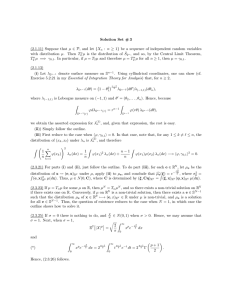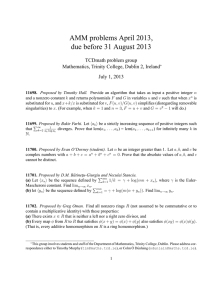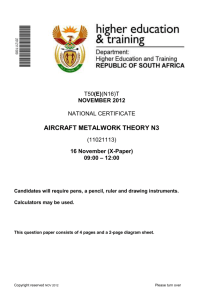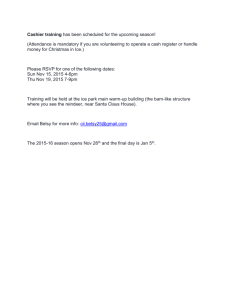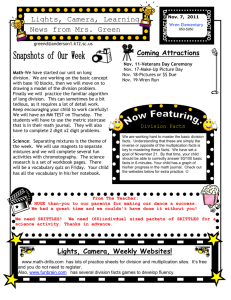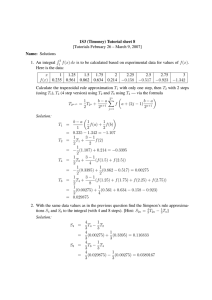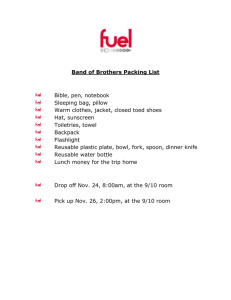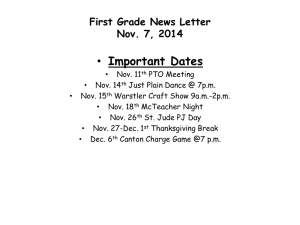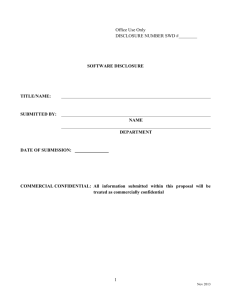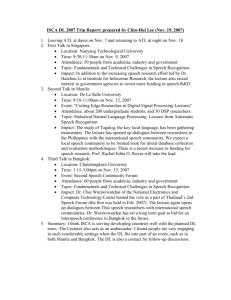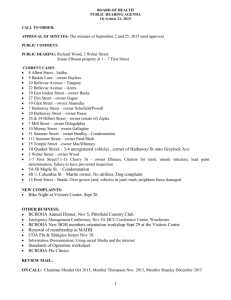aircraft metal work theory n2 qp nov 2012
advertisement
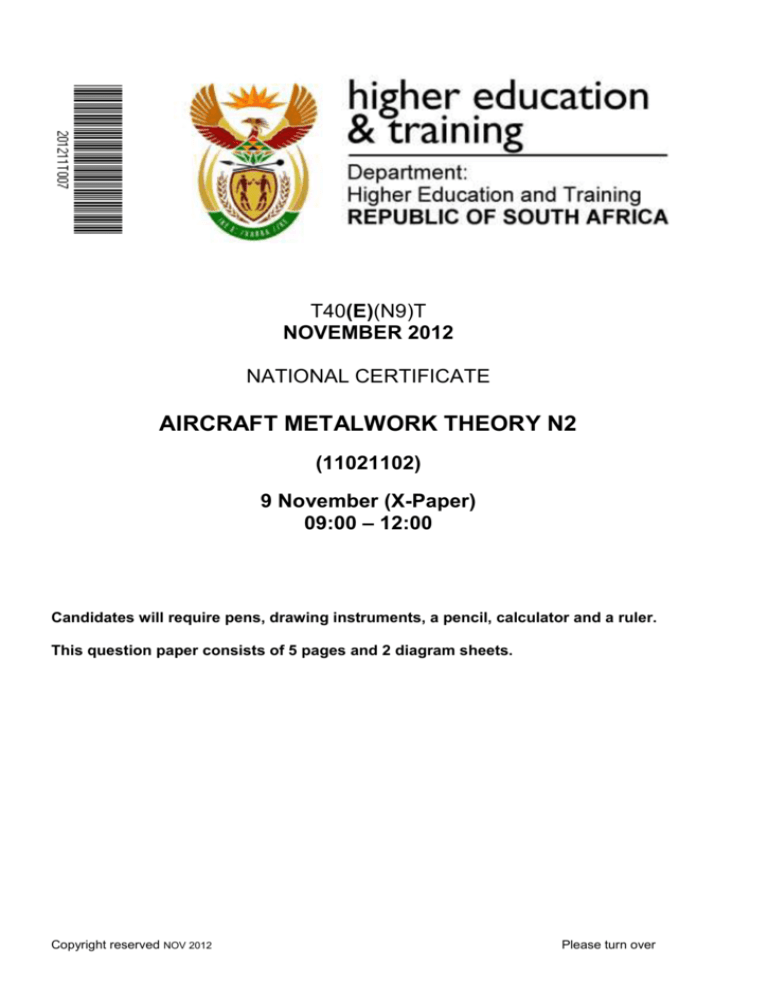
T40(E)(N9)T NOVEMBER 2012 NATIONAL CERTIFICATE AIRCRAFT METALWORK THEORY N2 (11021102) 9 November (X-Paper) 09:00 – 12:00 Candidates will require pens, drawing instruments, a pencil, calculator and a ruler. This question paper consists of 5 pages and 2 diagram sheets. Copyright reserved NOV 2012 Please turn over (11021102) -2- T40(E)(N9)T DEPARTMENT OF HIGHER EDUCATION AND TRAINING REPUBLIC OF SOUTH AFRICA NATIONAL CERTIFICATE AIRCRAFT METALWORK THEORY N2 TIME: 3 HOURS MARKS: 100 ________________________________________________________________________ INSTRUCTIONS AND INFORMATION 1. Answer ALL the questions. 2. Read ALL the questions carefully. 3. Number the answers correctly according to the numbering system used in this question paper. 4. Drawings must be large, neat and clear. 5. Start each question on a NEW page. 6. Write neatly and legibly. Copyright reserved NOV 2012 Please turn over (11021102) -3- T40(E)(N9)T QUESTION 1: TOOLS 1.1 1.2 1.3 FIGURE 1, DIAGRAM SHEET 1 (attached) shows a squaring shear. Name the parts A to F. (6) FIGURE 2, DIAGRAM SHEET 1 (attached) shows a pneumatic rivet gun. Name the parts A to E. (5) Name the FOUR colours of Cleco fasteners used during riveting. (4) [15] QUESTION 2: MATERIAL 2.1 2.2 Describe the following properties when referring to metals. examples of the metals who have these properties. Give also 2.1.1 Fatigue resistance (2) 2.1.2 Ductility (2) 2.1.3 Elasticity (2) 2.1.4 Malleability (2) 2.1.5 Brittleness (2) What does each of the following letters mean in the temper designation system for aluminium rivets? 2.2.1 2.2.2 2.2.3 2.2.4 2.2.5 F O H T W (5) [15] QUESTION 3: RIVETS 3.1 State FOUR precautions upon which the strength of a rivet depends. 3.2 Make a sketch to show the maximum rivet length and the buck tail size. Copyright reserved NOV 2012 Please turn over (4) (6) [10] (11021102) -4- T40(E)(N9)T QUESTION 4: FUEL TANKS Describe the soap solution test when repairing fuel tanks under the following headings: 4.1 Testing prior to repairs 4.2 Testing after repairs (4) (6) [10] QUESTION 5: CONSTRUCTION 5.1 FIGURE 3, DIAGRAM SHEET 2 (attached) shows an aircraft's wing. Label the wing parts from A – J. [10] QUESTION 6: DRAWINGS 6.1 Name FIVE types of drawings used in the aircraft industry. 6.2 Make neat labelled sketches to explain joggling. (5) (10) [15] QUESTION 7: DEVELOPMENT FIGURE 4, DIAGRAM SHEET 2 (attached) shows a transitional sheet-metal article in the shape of a truncated cone. Copy the given views in your ANSWER BOOK and develop the article. Show the full development using scale 1:1. QUESTION 8: GENERAL Indicate whether the following statements are TRUE or FALSE. Choose the answer and write only 'true' or 'false' next to the question number (8.1 – 8.10) in the ANSWER BOOK. 8.1 The micrometer is a precision measuring instrument and is used to obtain measurements of up to ONE HUNDREDTH of a millimetre. 8.2 Straight-jaw tin snips are used to cut metal in straight lines or circles. 8.3 Hand reamers are available in standard and adjustable sizes. 8.4 Conductivity is the property which enables a metal to carry heat or electricity. 8.5 Strength is ONE factor when selecting rivets. Copyright reserved NOV 2012 Please turn over [15] (11021102) -5- T40(E)(N9)T 8.6 Aldolizing is the most common surface treatment of non-clad aluminium alloy surfaces. 8.7 Countersunk rivet heads are marked by a cross. 8.8 Black is the colour coding of 4,8 mm Cleco fasteners. 8.9 Torsion is the stress that produces twisting. 8.10 Continuous thick lines are used for visible outlines on engineering drawings. TOTAL: Copyright reserved NOV 2012 Please turn over [10] 100 (11021102) -6- T40(E)(N9)T DIAGRAM SHEET 1 FIGURE 1 FIGURE 2 Copyright reserved NOV 2012 Please turn over (11021102) -7- T40(E)(N9)T DIAGRAM SHEET 2 FIGURE 3 FIGURE 4 Copyright reserved NOV 2012 Please turn over
